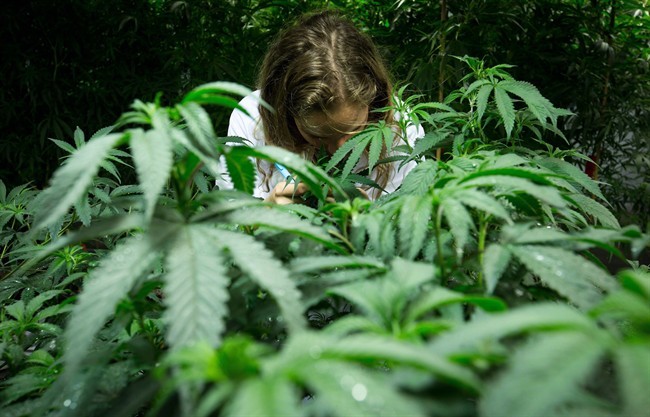VANCOUVER – The federal government is telling the City of Vancouver it does not have the authority to legitimize pot with its proposal to regulate “illegal” medical marijuana dispensaries.

Health Minister Rona Ambrose sent a letter to Vancouver Mayor Gregor Robertson on Thursday saying she was “deeply concerned” by the city’s plans to discuss regulation at an upcoming council meeting.
“Marijuana is not an approved drug or medicine, and Health Canada does not endorse its use,” reads the letter obtained by The Canadian Press.
“Legitimizing and normalizing the use and sale of marijuana can have only one effect: increasing marijuana use and addiction.”
City staff will present a report to council on Tuesday recommending regulating the booming medical pot industry. The rules would include a $30,000 licensing fee and require the shops to be at least 300 metres from schools, community centres and other dispensaries.
In the letter, the health minister says there are serious health risks associated with smoking marijuana. She argues “normalizing” pot could mean more than tripling its use by youth.
Ambrose writes that although Canadian courts have required the government to allow access to marijuana when authorized by a doctor, the law says this must be done in a controlled way.
“These regulations are clear and do not provide municipalities with the authority to legitimize the commercial sale of marijuana, which remains an illegal substance,” she says.
She says the government implemented the Marijuana for Medical Purposes (MMPR) regulations with the aim of treating marijuana like other narcotics used for medical purposes.
“Storefronts and dispensaries do not operate within a ‘grey zone,’ and the law is clear: they are illegal.”
City manager Penny Ballem told reporters on Wednesday that the federal approach had created “greyness and confusion,” forcing the city to intervene.
On Thursday, Councillor Kerry Jang said Ambrose had been misinformed about Vancouver’s proposed bylaw, which he said was specifically designed to limit exposure to youth.
“Her whole letter is contradictory,” he said. “It does not deter us at all from going forward with this.”
He said medical marijuana is legal in Canada and the city has jurisdiction over land use, which allows it to create a new licence category for medical marijuana-related businesses.
The number of dispensaries in Vancouver has multiplied from six to over 80 in under two years.
Jang said the federal government has generally ignored the city’s requests to discuss the problems.
“In the city of Vancouver we’ve always taken a public health and harm reduction approach,” he said. “We know that prohibition does not work. You can’t stamp something out … so let’s reduce the harms and manage what we have.”
Advocates are divided on the new rules — even some within the same household. “Prince of Pot” Marc Emery called regulation cynical and unnecessary, while his wife and fellow pot activist Jodie said it’s a positive step toward legalization.
“It tells the provincial and federal government, as well as other municipalities, that marijuana is here to stay. It’s worth money. There’s demand, if there’s this kind of supply,” said Jodie Emery.
But the couple agreed the $30,000 fee was excessive and would likely force smaller dispensaries to close.
“The city is just going for a money grab at the expense of medical marijuana patients, some of whom hardly have enough money to pay for what they’re buying now,” Marc Emery said.
Jang said the city would not profit at all from the fee, which is needed to recover costs including police record checks, building inspections and processing applications.
Chuck Varabioff of the B.C. Pain Society, which runs two dispensaries in Vancouver, welcomed the regulations but criticized the hefty fee and 300-metre rule.
“It’s about time our industry was regulated and treated as a legitimate business,” he said.
— Follow @ellekane on Twitter.



Comments